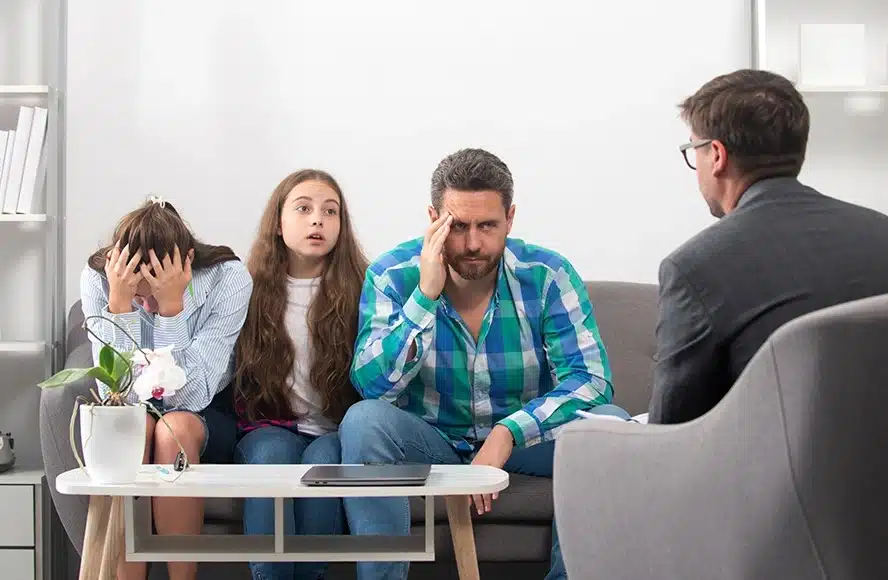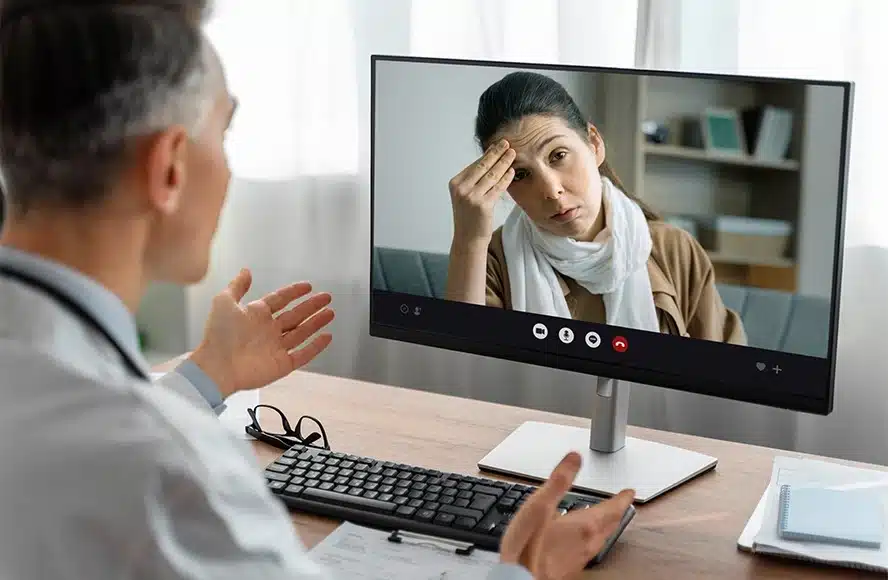Not all impulsive behavior indicates ADHD. Sometimes continued impulsivity, oppositional behavior, or aggressive behavior can result from deeper issues related to disruptive and impulse control disorders. The deeply rooted understanding of these issues is important for enhancing emotional health and helping affected individuals access the appropriate services.
As stated by the National Institute of Mental Health, 9.8% of children in the US receive a diagnosis of ADHD, but 3–5% display symptoms of impulse control disorders that may be misdiagnosed as ADHD. Early identification, accurate identification, and professional support can create meaningful change.
If you or a loved one is concerned about these symptoms, consulting an online psychiatrist near me can be a convenient way to get professional guidance and support.
Understanding Disruptive and Impulse Control Disorders
Disruptive and impulse-control disorders refer to a condition where there is difficulty managing one’s feelings, behavior, and reactions. They often begin in childhood or adolescence and can continue throughout someone’s adulthood.
Familiar examples include oppositional defiant disorder (ODD), conduct disorder (CD), and intermittent explosive disorder (IED). Impulsive disruptive conduct disorder includes serious patterns of aggression, defiance, or rule-breaking that may have overlap with Attention Deficit Hyperactivity Disorder (ADHD) behaviors.
Here is a quick guide:
| Disorder Type | Common Symptoms | Typical Onset Age | Gender Prevalence |
| Oppositional Defiant Disorder ODD | Defiance, anger, arguing with adults | 6–8 years | Boys more than girls |
| Conduct Disorder CD | Aggression, theft, rule-breaking | 9–14 years | Boys more than girls |
| Intermittent Explosive Disorder IED | Sudden anger outbursts, verbal or physical aggression | Late childhood to adulthood | Equal |
Family members often notice these ongoing patterns first. Recognizing these signs early allows for interventions that can improve emotional health and prevent long-term challenges.
ADHD vs Impulse Control Disorders Spotting the Difference
Although ADHD and impulse control disorders may appear the same, their distinctive characteristics differ. Knowing these differences will help to ensure proper treatment and promote mental health.
Core Characteristics of ADHD
When we think of ADHD, we mainly think of factors like inattention, distractibility, and/or hyperactivity. Children or adults with ADHD may have difficulty sustaining their attention, working schoolwork, or organizing their belongings or thoughts, but this is not typically done with conscious intent. Boredom, distractions, and/or overwhelming environmental or emotional stimuli are often the catalysts for giving up on focus.
Core Characteristics of Impulse Control Disorders
Impulse control disorders, such as impulsive disruptive conduct disorder, usually include intentional behaviors rooted in ongoing frustration and/or anger. Aggression, stealing, or breaking rules may be characteristic behaviors. It is important to note that studies suggest that upwards of 60% of children with a diagnosis of conduct disorder also displayed symptoms of ADHD. As a practice parameter, kids included in studies with impulsive disruptive conduct disorders must be assessed thoroughly.
ADHD vs Impulse Control Disorders Table
| Feature | ADHD | Impulse Control Disorders |
| Main Issue | Inattention & hyperactivity | Emotional regulation & aggression |
| Behavior Type | Unintentional | Often deliberate |
| Common Triggers | Boredom, distraction | Anger, frustration |
| Treatment Focus | Focus & impulsivity management | Anger control, behavioral therapy |
Identifying whether behaviors stem from ADHD or disruptive and impulse control disorders helps families, schools, and mental health professionals create an effective treatment plan.
The Importance of Accurate Diagnosis
Errors in diagnosis can contribute to poor intervention and engagement, lagging progress, and further mental health concerns such as anxiety disorders or bipolar disorder. It is critical to assess from various sources, which may include family members, teachers, and mental health assessments. The CDC reports nearly 1 in 5 children identified as having ADHD actually have another behavioral disorder.
By accessing mental health services in Los Angeles, the child can receive evidence-based assessments of ADHD. Licensed providers rely on standardized structured assessments to help differentiate ADHD from other disruptive impulse control and conduct disorders. Getting the diagnosis right with great intervention in a timely fashion helps produce better long-term emotional and social outcomes for the child and family.
Effective Treatment for Disruptive Behavior Disorders
Treatment for disruptive behavior disorders is most effective when it addresses emotional regulation, behavioral patterns, and environmental support. Key approaches include:
| Treatment Type | Best For | Goal |
| Cognitive Behavioral Therapy CBT | ODD, IED | Improve emotion control and coping strategies |
| Parent-Child Interaction Therapy | ODD, CD | Strengthen positive behavior and communication |
| Medication | Severe IED/CD | Manage aggression, mood swings, and impulsivity |
| Group Therapy | Teens/Young Adults | Build social skills and peer support |
Prescribed medication may support emotional regulation when symptoms are severe. Family members play a crucial role in reinforcing treatment goals at home. Early intervention through treatment for disruptive behavior disorders fosters healthier relationships, improved self-control, and emotional resilience.
Getting Professional Help Online or In Person
Engagement with an online mental health specialist can provide privacy, convenience, and connection to licensed practitioners. Remote assessments would facilitate continuity of symptom monitoring and medication management. Online psychiatric services can help families understand how to bolster coping strategies in the home.
To learn more about how Los Angeles is leading the way in accessible psychiatric services, read our related article:
Why Los Angeles Is Becoming a Hub for ADHD Psychiatrists and Online Psychiatry
Accessing Mental Health Services in Los Angeles CA
Los Angeles has a wide range of mental health services which provide comprehensive assessments, structured treatment, and family support in clinics and hospitals. In addition, community-based services also offer mental health services, community based mental health specialists and tele health options broaden access for those unable to get to appointments in the community. Seeking open and professional support is a proactive process towards sustaining emotional and mental wellness.
Conclusion
Impulsive actions are not always ADHD. Disruptive and impulse control disorders can present as defiance, aggression or rule breaking. Distinguishing between these conditions and pursuing treatment for disruptive behaviors ensures the individual receives appropriate support for emotional health. MindVibe is different, we are connecting individuals to licensed online psychiatrists near me, providing you with personal, continued support, and guidance. With care you can regain balance, build resilience, and feel confident in your journey towards well- being.







